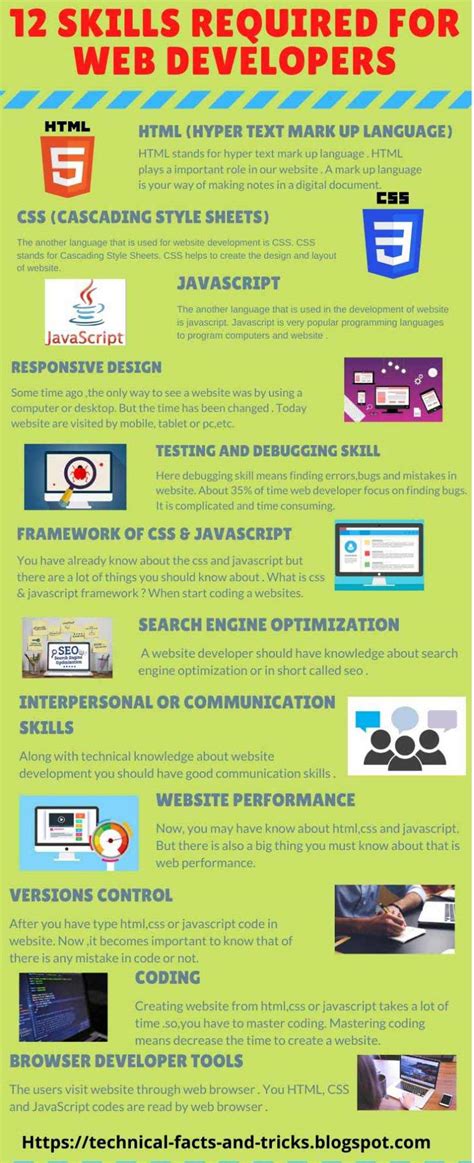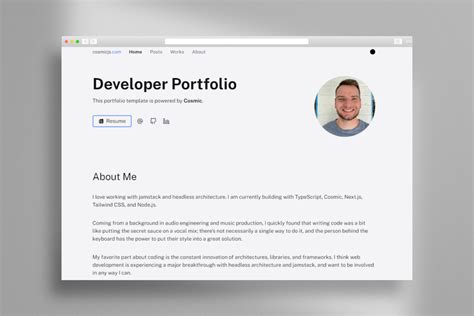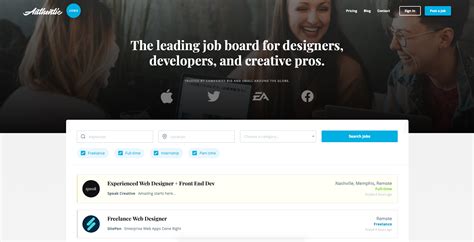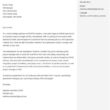Welcome to the digital age, where the freedom to work from anywhere is not just a dream, but a very real possibility, especially for those in the tech industry. If you have a knack for coding and design, the role of a remote web developer may be right up your alley. But before you dive into the ocean of online job opportunities, it’s important to have a map to navigate these waters. In this post, we’ll explore every aspect of the web developer remote job finding process. Starting with an overview of the demand for remote web developers, we’ll also delve into the essential skills and tools you’ll need. Then we’ll guide you through creating a winning portfolio, effectively searching for job listings, crafting compelling applications, and finally, acing remote interviews and technical assessments. Whether you’re a seasoned developer or just starting out, this comprehensive guide aims to streamline your journey to landing that dream remote web developer job.Explore remote web development: demand insights, essential skills, portfolio tips, job board strategies, application advice, and interview prep guidance.
Understanding the Demand for Remote Web Developers

As businesses pivot towards a digital-first approach, the demand for Web Developer Remote Job opportunities has become more pronounced. From budding startups to established corporations, entities are eager to fill Remote Web Developer Positions with talented individuals who can contribute to their online presence and project execution without the constraints of location. This paradigm shift has brought forth not just freelance gigs but long-term, well-compensated Virtual Web Development Positions that allow professionals to work from anywhere in the world with a reliable internet connection.
The flexibility and cost-efficiency of hiring remotely have spurred companies to seek Remote Full Stack Developer Opportunities that combine the skill sets of both front-end and back-end disciplines. In this regard, candidates for these roles who are proficient at navigating the complexity of entire web applications from user interface to server-side logic are particularly in high demand. On the front-end spectrum, Virtual Front End Developer Jobs are abundant, with companies looking for experts adept in modern frameworks and who can create responsive, user-friendly interfaces with their command over Virtual HTML/CSS Specialist Roles.
Conversely, the need for back-end stability and functionality gives rise to diverse Telecommuting Back End Developer Roles. Organizations require developers who understand server, application, and database interconnectivity and can manage and scale the technology that powers the user-facing side. This necessity opens up numerous possibilities for those specialized in server-side languages and frameworks, including Remote PHP Developer Positions and Virtual Ruby on Rails Developer Jobs. The widely popular content management system WordPress also creates a steady flow of Telecommuting WordPress Developer Opportunities, as many clients seek experts to develop and maintain their WordPress-based sites.
Lastly, with web technologies continually evolving, the market for Remote JavaScript Developer Jobs is growing exponentially. JavaScript’s ubiquitous nature across web projects ensures a steady stream of job openings for those well-versed in the language. As employers aim to build dynamic, high-quality web applications, they are on the lookout for JavaScript developers who can work remotely and bring a high level of expertise and innovation to their online projects. Therefore, professionals with a strong command over JavaScript frameworks and libraries are well-positioned to take advantage of the burgeoning job market in remote web development.
Skills and Tools Required for Remote Web Development

Being a Web Developer Remote Job seeker means having a portfolio that showcases a deep understanding of both the technical and collaborative tools necessary for success. Long gone are the days when coding abilities alone were enough to secure a position. In today’s landscape, a proficient Remote Web Developer is expected to be skilled in a variety of programming languages, including but not limited to Javascript, often for Virtual Front End Developer Jobs, or Ruby on Rails for those seeking Virtual Ruby on Rails Developer Jobs.
Last but not least, remote web developers must be well-versed in deploying applications, understanding server management, and utilizing cloud services, such as AWS or Google Cloud, which are frequent requirements in Remote JavaScript Developer Jobs. Adding database management skills for SQL or MongoDB can set a professional apart when applying for the myriad of Virtual Web Development Positions available. Ultimately, continuing education and adaptation to new technologies and methodologies are the cornerstones for any developer seeking success in the remote job market.
Creating a Winning Portfolio for Remote Web Developer Jobs

As the job market for Web Developer Remote Job continues to expand, it’s essential to understand that your portfolio represents more than just a collection of your previous work; it reflects your technical abilities, your problem-solving skills, and your personal brand. Building a compelling portfolio that stands out is critical when applying for Remote Web Developer Positions. Therefore, a meticulously curated selection of your best work can demonstrate not only your proficiency in various technologies but also your versatility across different projects.
For those aspiring to occupy Virtual Front End Developer Jobs or Telecommuting Back End Developer Roles, showcasing a balance of design, functionality, and innovation is key. It’s advisable to include projects that illustrate your mastery of the full spectrum of web development, from eye-catching visual elements to robust server-side algorithms. Furthermore, presenting detailed case studies within your portfolio can illustrate your approach to problem-solving, which is an invaluable trait for anyone seeking Remote Full Stack Developer Opportunities.
Navigating Remote Web Developer Job Boards and Listings

For many professionals, Web Developer Remote Job listings serve as the starting blocks in the race to secure the perfect role. But navigating these job boards can often feel like an insurmountable maze. With a plethora of options, from Remote Full Stack Developer Opportunities to Virtual Front End Developer Jobs, it’s critical for candidates to refine their search and focus on roles that align with their skill set and career goals. This entails setting clear parameters around the type of developer work one is seeking – whether that’s Telecommuting Back End Developer Roles or specialized Virtual HTML/CSS Specialist Roles.
As you sift through listings, it’s equally important to consider the various platforms that cater to remote web developer needs. In addition to the generalist job boards, there are those dedicated exclusively to tech positions – sites that curate Virtual Web Development Positions and provide a sea of Remote JavaScript Developer Jobs for those who eat, sleep, and breathe code. Yet the savvy job hunter does not forsake niche forums and communities that occasionally list exclusive Telecommuting WordPress Developer Opportunities or sought-after Remote PHP Developer Positions that may not be as fiercely contested.
Crafting Compelling Applications for Remote Web Development Roles

As the world shifts further towards digitization, the hunt for Remote Web Developer Positions has intensified, prompting many to seek guidance on how to create applications that stand out. Crafting a compelling application is a critical step in securing Virtual Front End Developer Jobs or Telecommuting Back End Developer Roles. It’s your moment to shine, articulating how your unique blend of skills, experience, and passion for code makes you the perfect fit for these coveted roles.
When targeting Remote Full Stack Developer Opportunities, it is imperative to meticulously detail your full spectrum of abilities. A mastery in both front and back end technologies should be prominently displayed, as employers are eager to find versatile professionals who can independently manage the breadth of a project. Similarly, applications for Remote JavaScript Developer Jobs must encapsulate your expertise in JavaScript frameworks and libraries, proving your capacity to contribute to complex web applications.
Acing Remote Interviews and Technical Assessments

When aiming to secure a Web Developer Remote Job, acing remote interviews and technical assessments is a vital step in the hiring process. Remote interviews often serve as a litmus test for not only your technical capabilities but also your ability to communicate effectively in a virtual environment. To excel, understanding the nuances of video interviews and mastering the presentation of your virtual workspace can significantly influence the interviewer’s perception of your professionalism and preparedness for Remote Web Developer Positions.
Technical assessments are commonplace when applying for Telecommuting Back End Developer Roles or Virtual Front End Developer Jobs. These evaluations measure your practical coding skills and problem-solving abilities. Prioritizing the preparation for typical coding challenges, algorithm questions, and project-based tasks will greatly enhance your chances of success. Additionally, keeping up-to-date with the latest developments in the field and demonstrating a clear comprehension of the full software development lifecycle can set you apart in the competition for Remote Full Stack Developer Opportunities.
Frequently Asked Questions
What qualifications are typically required for a remote web developer job?
Qualifications for a remote web developer job typically include a strong foundation in web programming languages such as HTML, CSS, JavaScript, and possibly back-end languages like Python or Ruby. Familiarity with frameworks and libraries such as React or Angular, version control systems like Git, and an understanding of responsive design principles are also important. In addition, good communication skills and the ability to work independently are often required for remote positions.
How can web developers stand out when applying for remote positions?
Web developers can stand out by showcasing a robust portfolio of their work, including live websites or projects. Acquiring certifications, writing technical blogs, contributing to open-source projects, and highlighting any previous remote work experience can also make an applicant more attractive. Tailoring the resume and cover letter to show how one’s skills align with the job requirements is essential.
What are the best platforms for finding remote web developer jobs?
Some of the best platforms for finding remote web developer jobs include websites like LinkedIn, Indeed, Glassdoor, as well as remote-specific job boards such as We Work Remotely, Remote.co, and Stack Overflow Jobs. Freelance marketplaces like Upwork and Toptal can also be good options for finding remote web development projects.
Are there any challenges specific to remote web developer jobs and how can they be overcome?
Remote web developer jobs can present challenges such as isolation, time management difficulties, and communication barriers. To overcome these, developers can establish a regular routine, create a dedicated workspace, use time-management tools, and communicate proactively with their team using collaboration tools like Slack, Zoom, or Trello to stay connected and aligned with project goals.
Is it important for web developers to negotiate the terms of remote work during the hiring process?
Yes, it is vital for web developers to negotiate terms of remote work such as work hours, availability, equipment provisions, and expense allowances during the hiring process. Setting clear expectations helps ensure that both the employer and employee have a mutual understanding of the working arrangement.
How should web developers prepare for remote job interviews?
Web developers should prepare for remote job interviews by researching the company and its culture, preparing their portfolio, having a clear understanding of the job description, and practicing answers to common interview questions. Additionally, they should ensure their technology setup is reliable with a strong internet connection, and choose a quiet and professional-looking space for the video interview.
What is the typical onboarding process for a remote web developer?
The typical onboarding process for a remote web developer often includes an introduction to the company’s policies and culture, setting up necessary accounts and tools, meeting the team virtually, and getting acquainted with the project management systems. Employers may also provide training sessions to familiarize the new hire with the workflow and specific technologies used by the team.








